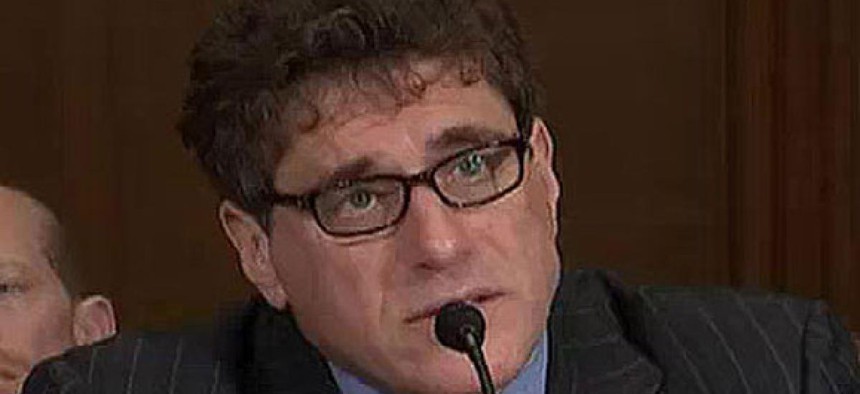
Steven Miller C-SPAN photo
IRS names acting commissioner
Steven Miller will take over for Doug Shulman when his term expires next month.
The IRS announced Wednesday that Steven Miller would become the agency's acting commissioner after its current chief, Doug Shulman, steps down Nov. 9.
Shulman's five-year term ends next month, and he had announced earlier this year that he did not want to be nominated to a second term. The appointment of an acting commissioner to replace him until the next presidential term starts was widely expected.
In comments to Government Executive following Shulman's announcement, a spokeswoman for Sen. Chuck Grassley, R-Iowa, a longtime Finance Committee member, said, “it seems very unlikely to Sen. Grassley that the Senate would consider an IRS commissioner nominee before the next president is chosen -- the choice should be the next president’s, whether that’s President Obama or someone else.”
Miller is a longtime IRS executive, and has held several leadership positions at the agency. He is currently deputy commissioner for services and enforcement.
The IRS has had 26 different acting commissioners since the agency was created in 1862.
Shulman, who was nominated in November 2007 and sworn in as the 48th commissioner on March 24, 2008, followed a six-month stint as acting commissioner by Linda Stiff, previously deputy commissioner for operations and support. Before that, Kevin M. Brown, deputy commissioner for services and enforcement, held the job for slightly more than three months after Commissioner Mark Everson resigned in May 2007 to head the Red Cross.
Earlier this year, Shulman told Government Executive that the remainder of his term would be heavily focused on two issues: implementing continuing education requirements for the 750,000 tax preparers across the country and continuing his Workforce of Tomorrow initiative, in which the agency aims to improve the quality of work life of its employees.
In a speech at the National Press Club in Washington in April, Shulman said the IRS had made “continuous improvements” during his tenure. The 100,000-employee organization is “recognized as an efficient and effective agency to carry out high-profile activities,” among them pushing out nearly one-third of 2009 Recovery Act money through the tax system. “We can be nimble and agile when called upon,” he said.






